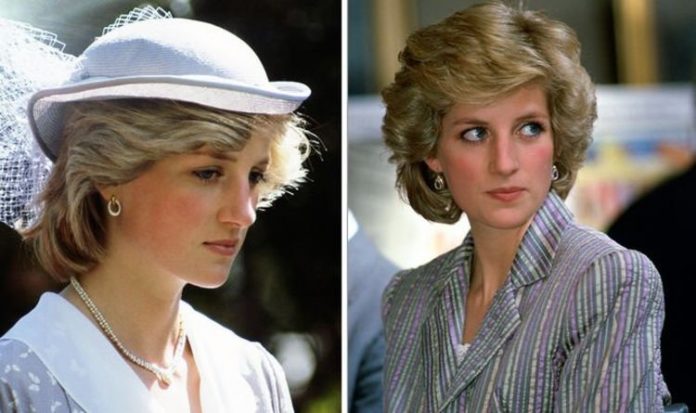The Princess of Wales struggled with bulimia, an eating disorder characterised by binging food and then ‘purging’ by throwing it up, for many years while married to Prince Charles. The Crown season four depicts haunting images of the Princess of Wales crouched by a toilet throughout, which has turned out to be a controversial portrayal. While some believe it is great for raising awareness of the mental disorder, others have claimed the Netflix drama’s use of it was gratuitous.
The Crown also suggests that the Royal Family were well aware of what Diana was going through, but that no one reached out a hand to help her.
This portrayal is supported by Diana’s own testimony, when she opened up about her eating disorder in an interview with BBC Panorama’s Martin Bashir in 1995.
She explained that she never asked anyone in the Royal Family for help because she felt “ashamed” and people thought she was “wasting food”.
She said: “You have to know that when you have bulimia you’re very ashamed of yourself and you hate yourself, and people think you’re wasting food, so you don’t discuss it with people.
READ MORE: Meghan Markle’s words indicate Royal Family ‘did not learn from Diana’

Princess Diana suffered from bulimia for a number of years (Image: GETTY)

Emma Corrin as Princess Diana in The Crown (Image: Netflix)
“And the thing about bulimia is your weight always stays the same, whereas with anorexia you visibly shrink.
“So you can pretend the whole way through. There’s no proof.”
When Mr Bashir asked whether anyone had specifically suggested that she was wasting food, she said: “Oh yes, a number of times.
“It was just, ‘Well, I suppose you’re going to waste that food later on’ ‒ and that was pressure in itself.

Princess Diana opened up about her bulimia in a BBC Panorama interview in 1995 (Image: GETTY)
“And, of course, I would, because it was my release valve.”
When asked how long she suffered from the illness, Diana said “a long time”, adding that it was more than just two or three years.
However, she said that thankfully she was “free of it” by the time of speaking.
She explained that her self-esteem had been very low and she used the cycle of binging and purging as a crutch to help cope with the pressures of her life.
DON’T MISS
Princess Anne’s ex-husband Mark Phillips fathered ‘secret’ child [REVEALED]
The Crown debunked: Queen did NOT discuss Thatcher with Fagan [ANALYSIS]
Kate Middleton’s haunting link to Unknown Warrior exposed [INSIGHT]

Princess Diana’s BBC Panorama interview in 1995 (Image: YouTube (CAMELOTHSPENCER))
The main pressure was the fact that she and Charles had to put on a brave face in public, even though their marriage was crumbling to pieces.
She also said she found her royal engagements draining, because she was having to comfort the sick and dying, while she had no one to comfort her.
Explaining the thought process behind bulimia, Diana said: “It’s like a secret disease you inflict upon yourself, because your self-esteem is at such a low ebb and you don’t think you’re worthy or valuable.
“You fill your stomach up four or five times a day ‒ some do it more ‒ and it gives you a feeling of comfort.
“It’s like having a pair of arms around you, but it’s temporary.
“Then you are disgusted by the bloatedness of your stomach and then you bring it all up again.
“And it’s a repetitive pattern, which is very destructive to yourself.”
Asked how often she did this, Diana said it depended on the pressures in her life at that time.

Diana said the bulimia was a symptom of her marriage (Image: GETTY)
She said: “If I had been on an away day, I’d come home feeling pretty empty because my engagements at that time would be to do with people dying, people very sick.
“And I’d come home and it would be very difficult to know how to comfort myself, having been comforting lots of other people, so it would be a regular pattern to jump into the fridge.”
The Princess of Wales said the bulimia was a cry for help, but instead it was used to brand her as “unstable”.
She claimed that people thought the bulimia was the problem instead of looking at the root cause of the disorder.
She told Mr Bashir: “It was a symptom of what was going on in my marriage.
“I was crying out for help, but giving the wrong signals and people were using my bulimia as a coat on a hanger.
“They decided that was the problem ‒ Diana was unstable.”
She continued: “The cause was a situation where my husband and I had to keep everything together, because we didn’t want to disappoint the public, and yet obviously there was a lot of anxiety going on inside our four walls.”
For help and support about eating disorders contact Beat on 0808 801677 or email help@beateatingdisorders.org.uk.







